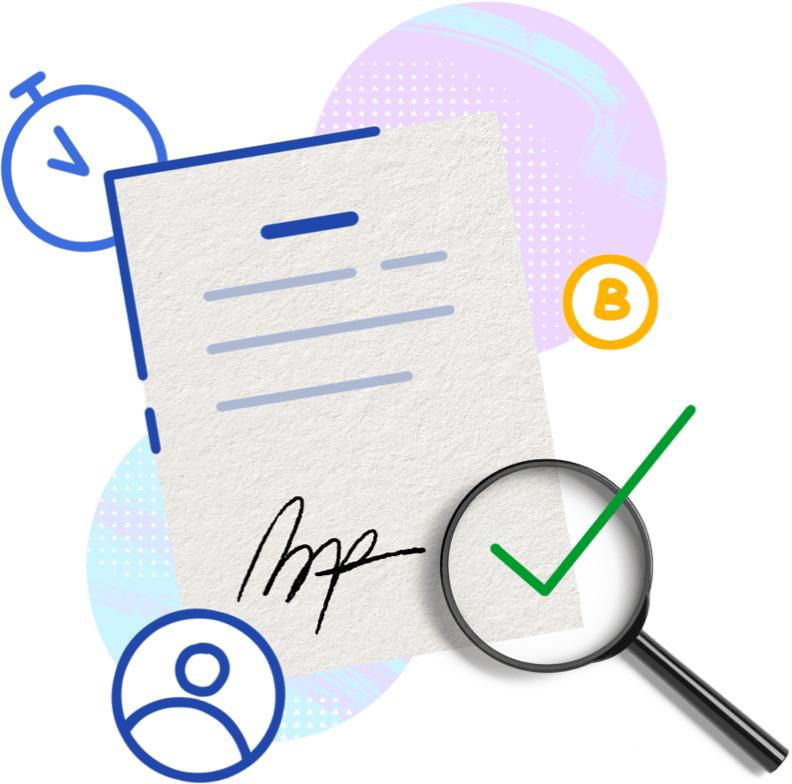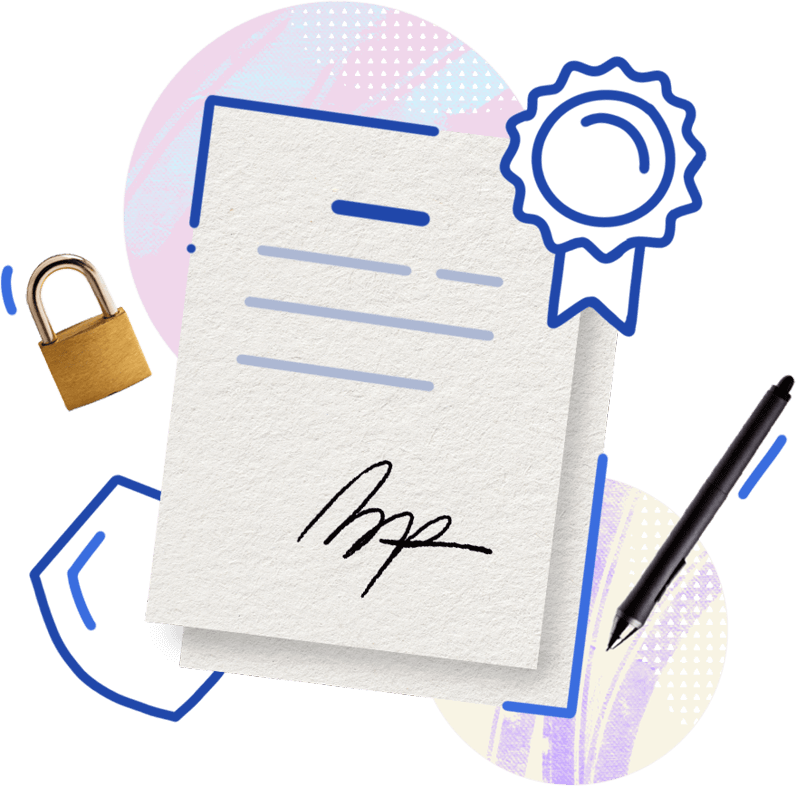How does it work?
Blockchain-based timestamping is a highly secure method for tracking the signature's creation time and any document changes. In fact, even the document owner cannot alter any data once it has been recorded. The process is completed on the Bitcoin blockchain network at Zoho Sign through an integration with OpenTimestamps.
The document is signed digitally using Zoho Sign.
A document hash is generated.
A timestamp request along with the document hash is sent to the OpenTimestamps server.
A Bitcoin transaction is initiated.
The transaction block has the document hash and other details.
The transaction block is committed to the blockchain network.
Proof is generated for the timestamp.
This proof is mapped to the respective documents in Zoho Sign.
Publicly verifiable
Anyone can access the bitcoin network to verify the signed document's existence and its time of signature.

Simple and easy to use
Sign your business documents as usual—Zoho Sign will take care of the blockchain-based timestamping in the background without any additional steps.

Two-level verification
Zoho Sign already uses the public key infrastructure (PKI) to ensure non-repudiation and integrity. With blockchain-based timestamping, you get an additional measure of document verification.

Enabling the blockchain-based timestamping feature in Zoho Sign
From your Zoho Sign dashboard, go to Settings in the left navigation pane.
Under the Admin Panel, select Account settings.
Scroll down to the Blockchain tab and toggle Blockchain time-stamping to ON.
Sign documents digitally with Zoho Sign
Get Zoho SignFAQs
A blockchain is an expanding record of blocks that are connected using cryptography. Each block comprises an encrypted hash of the previous block, a timestamp, and transaction data. Blockchains typically serve as transparent digital ledgers for recording online transactions. Attempting to modify records in a blockchain retroactively would necessitate altering all subsequent blocks.
The security of the blockchain relies on hash algorithms, which convert data of any size into a fixed alphanumeric string using a specific hash function (64-bit/128-bit/256-bit). This resulting fixed length output is referred to as a hash. Generating the same input data will always produce the same hash, while even a minor alteration to the data will completely alter the hash output.
Yes, you can use this feature by toggling the Blockchain time-stamping option to ON in your Zoho Sign account settings.
After you toggle the feature to ON in your Zoho Sign account settings, there are no other prerequisites for this feature to work.
No, blockchain-based timestamping will not expose your document to the public. Only the hash of the signed document will be added to the public blockchain network, not the document itself.
While the blockchain-based timestamping feature on the Ethereum blockchain is no longer available, it is still possible to verify previously timestamped documents on the Zoho Sign app.
